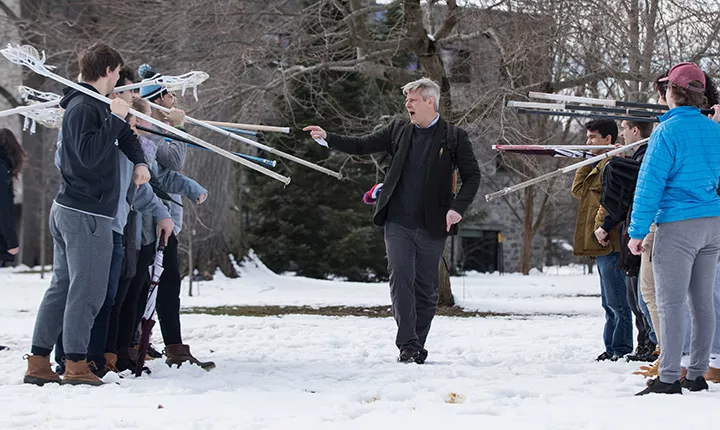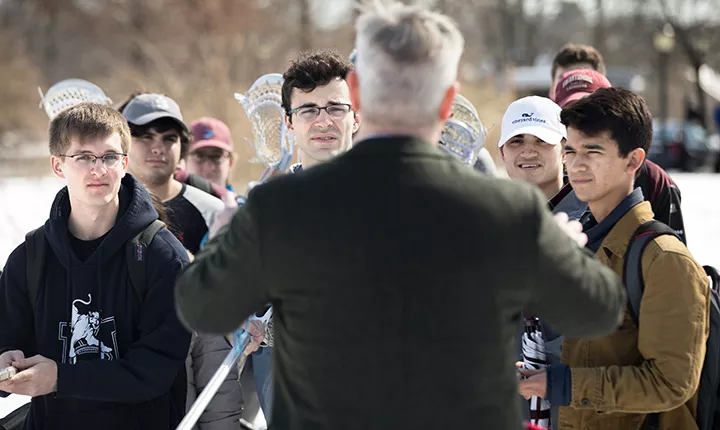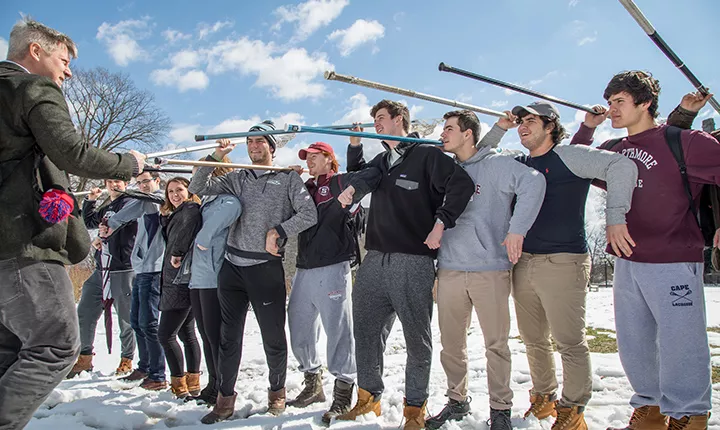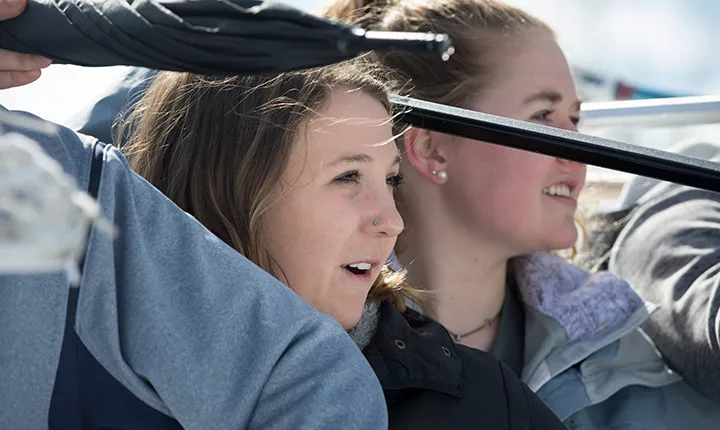There was a Roman battle outside of Trotter Hall last Friday — and then a classics lesson broke out.
Visiting Assistant Professor of Classics Jacob Morton staged this skirmish, imbuing his class on food and war in ancient Rome with on-the-ground flavor.
“You super want to live,” Morton instructed one of his student combatants, “which means staying behind [your classmate’s] shield.”
“You, in the front,” he called to another student. “Your job is murder.”
“Got it,” she replied, resolute.
Morton taught a group of about 20 students — and a handful of curious onlookers — formations of battle from ancient Greece and Rome. Setting apart the different eras, he explained, were new weapons or tactics.
“It went from this whole hiding and shooting an arrow thing to, ‘Let’s put on a lot of armor, line up in a field, and settle it in an hour with a lot of dead people,'” Morton said. “But it’s counterintuitive — you have to convince people to be willing to risk being stabbed in the face.”
Combatants were motivated not by money but glory, Morton says. Commanders seized the most dangerous posts.
Depicting hoplite warfare, the students organized themselves into a unit. But instead of javelins and breastplates, they carried lacrosse sticks and backpacks. Then they parted into two armies, walking in lockstep to war.
“It was particularly helpful to realize how the mechanics of ancient warfare worked at a granular level,” says Nate Truman ’18, an economics and Spanish major from St. Paul, Minn., “and how those mechanics could be exploited for an army's victory or defeat.”
The key is to not panic, Morton advised, tracing the word to the ancient Greek god Pan, who is capable of “getting inside you and making you lose your mind.”
“So you guys are the Romans,” he told one of the units, before cupping his face and whispering: “You’re gonna win.”
This colorful banter — even referencing the rapper Meek Mill, in comparison to music Romans used to hype themselves up for battle — kept spirits high on the cold and damp afternoon. Even better, it breathed life into lessons on how food drove Roman military policy.
“The way [Morton] talks about the information is hilarious, and it makes it way more fun to learn about,” says Bryan Murray ’19, a biology major from Exton, Pa., a class member who helped to wrangle eight of his lacrosse teammates for the battle.
Adds Amanda Lee ’18, a psychology major from Thornton, Col.: “Not only does it provide context and deeper understanding of what we read, but it’s quite fun — albeit cold.”
“[Morton] gives students a vivid and tangible sense of daily life and warfare," adds Grace Ledbetter, professor and chair of classics and professor of philosophy, "and he has a lot of fun doing it."







